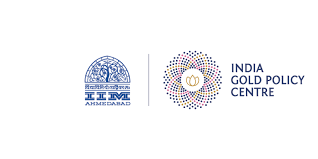
Ahmedabad: India Gold Policy Centre (IGPC) at Indian Institute of Management Ahmedabad (IIMA) released a study on the viability of a Gold Spot Exchange in India by Prof. Joshy Jacob and Prof. Jayanth R. Varma of IIMA. One of the key findings is that a Gold Spot Exchange is eminently viable and would lead to efficient price discovery, assurance in the quality of gold, active retail participation, greater integration with financial markets, and greater gold recycling. The study involved a survey of all important stakeholders including jewellers, refiners, bankers, commodity exchanges and other participants in the gold value chain. It also studied the Gold Spot Exchanges in Turkey, China, Singapore and Dubai.
Briefing about the study, Prof. Joshy Jacob explained that, “Most of the demand for physical gold in India is routed through hubs outside India, particularly Dubai. The quality of gold available and the price in various parts of the country vary significantly. Large players procure gold directly from miners and traders in overseas gold hubs, while the medium and small jewellers are often forced to depend on large players and face significant price disadvantage.”
The study indicates that the small players and perhaps some large players are keen to source gold through a gold exchange. The assessment based on conversations with a wide variety of potential stakeholders and participants is that if 10% of India’s gold imports flow through the exchange it would provide the minimal liquidity to sustain a contract. Prof. Jayanth Varma emphasized, “This minimal liquidity of 100 tons would attract larger participation and snowball into a vibrant contract that becomes the dominant forum for price discovery and for investment in physical gold.”
Prof. Varma added that “Governance is one of the key things that an Indian gold exchange would bring to the table. The Gold Exchange must aim at achieving leadership in Asian gold markets by setting high standards of governance including an India responsible gold policy, world class gold quality assurance, risk management, clearing and settlement as well as regulation and supervision by a credible regulator like SEBI. To avoid conflicts of interest, the Gold Exchange must be promoted by neutral players like existing exchanges, banks and other financial entities rather than by participants in the gold industry.”
The study recommends that the Exchange should offer a wide range of contracts to meet the needs of the gold industry such as (a) domestic spot gold contract (b) global spot gold contract denominated in US dollars based on delivery outside the domestic tariff area (DTA) (c) dore swap contract and (d) gold lending and borrowing mechanism (GLBM). Within the constraints of capital control regulations, both the domestic and global contracts on the Gold Exchange must be open to the widest range of participants.
The India Gold Policy Centre at the Indian Institute of Management, Ahmedabad (IIMA) sponsored by the World Gold Council is a Centre of excellence, conducting cutting-edge applied research on the Gold Industry in India and providing insights to suggest ways at both policy as well as execution levels. It works closely with the policy makers and advises them on several issues related to policies on gold. India Gold Policy Centre worked closely with the Ministry of Finance (MOF) on creating a better understanding of the Gold Monetization Scheme and Sovereign Gold Bonds Scheme introduced by the government recently.



